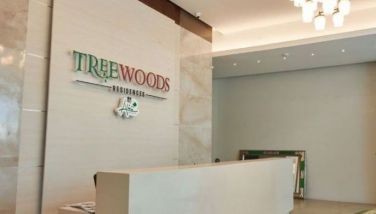Green housing microfinance program to pilot in Mandaue
CEBU, Philippines — Mandaue City will serve as the pilot location for the nationwide implementation of the government’s inclusive green housing microfinance program for low-income families.
The Department of Human Settlements and Urban Development (DHSUD) and Habitat for Humanity recognized Mandaue City’s existing laws on green practices, particularly the ordinance 163-2023, known as the “green building ordinance.”
In her recent visit to Cebu, DHSUD officer-in-charge and director for Public Housing and Settlements Service, Rowena Dineros announced that Mandaue City will serve as a trailblazer in promoting green housing and lifestyle concepts across the Philippines, through the implementation of green housing microfinance program for low-income families.
In an interview with Dineros, she said that green development involves projects that reduce the use of carbon footprints and make use of resources that promote sustainability and energy efficiency, including the identification of all financial institutions that offer affordable housing loans that build green homes.
“We really have to do intensive info campaign in green technology, especially green housing, and inclusive housing microfinance,” she said.
Taking into consideration the existence of a 500-unit green socialized housing project in Barangay Tipolo, Mandaue City, Dineros said Mandaue City is the right place to start the aggressive campaign on building green housing, particularly for the lower-end spectrum.
According to Jessan Cate, Philippine country director of Habitat for Humanity-Terwilliger Center, Mandaue City’s efforts to encourage developers to build green projects including the socialized housing developers has earned the city to be called a “green spot.”
Catre said Mandaue City is one of the first adaptors of promoting green developments with attractive tax perks, and other incentives, “it’s a great foundation to start with.”
Catre also lauded the leadership of Mandaue City Mayor Jonas Cortes in green development saying the City is a perfect area where national policies will be tested.
“We will map out the areas where the green microfinance will be tested. We don’t want to go wide immediately,” Catre said adding that his office, along with DSHUD will work with Mandaue LGU, taking advantage of Habitat for Humanity’s existing partner institutions in microfinance.
Green and inclusive finance focuses on all instruments, products, and services that address climate change: mitigation and adaptation; solutions for waste, water, and sanitation management; land management and ecosystem conservation; organic farming; access to clean and reliable energy; and energy efficiency. It also applies housing microfinance practices with housing microfinance innovations.
Dineros emphasized that adapting to green practices, is not expensive contrary to the general impression, saying “We can adopt ways and strategies to bring down the cost within their means.”
She added that there are many inexpensive ways to practice green living, including building low-cost green homes.
“We can devise ways such as updating the housing microfinance product manual that sets the process and requirements for every household on how to avail themselves of this green technology under the microfinance program,” she said.
“These green technologies, I believe, should be available to all households in the country,” Dineros concluded. — (FREEMAN)
- Latest

























